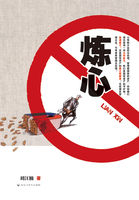"At that time, as the southern Slavonians paid tribute to the Kozars, so the Novgorodian Slavonians suffered from the attacks of the Variags. For some time the Variags exacted tribute from the Novgorodian Slavonians and the neighbouring Finns; then the conquered tribes, by uniting their forces, drove out the foreigners. But among the Slavonians arose strong internal dissensions; the clans rose against each other. Then, for the creation of order and safety, they resolved to call in princes from a foreign land. In the year 862 Slavonic legates went away beyond the sea to the Variag tribe called Rus, and said, 'Our land is great and fruitful, but there is no order in it; come and reign and rule over us.' Three brothers accepted the invitation, and appeared with their armed followers. The eldest of these, Rurik, settled in Novgorod; the second, Sineus, at Byelo-ozero; and the third, Truvor, in Isborsk. From them our land is called Rus.
After two years the brothers of Rurik died. He alone began to rule over the Novgorod district, and confided to his men the administration of the principal towns."
This simple legend has given rise to a vast amount of learned controversy, and historical investigators have fought valiantly with each other over the important question, Who were those armed men of Rus? For a long time the commonly received opinion was that they were Normans from Scandinavia. The Slavophils accepted the legend literally in this sense, and constructed upon it an ingenious theory of Russian history. The nations of the West, they said, were conquered by invaders, who seized the country and created the feudal system for their own benefit; hence the history of Western Europe is a long tale of bloody struggles between conquerors and conquered, and at the present day the old enmity still lives in the political rivalry of the different social classes. The Russo-Slavonians, on the contrary, were not conquered, but voluntarily invited a foreign prince to come and rule over them! Hence the whole social and political development of Russia has been essentially peaceful, and the Russian people know nothing of social castes or feudalism. Though this theory afforded some nourishment for patriotic self-satisfaction, it displeased extreme patriots, who did not like the idea that order was first established in their country by men of Teutonic race.
These preferred to adopt the theory that Rurik and his companions were Slavonians from the shores of the Baltic.
Though I devoted to the study of this question more time and labour than perhaps the subject deserved, I have no intention of inviting the reader to follow me through the tedious controversy. Suffice it to say that, after careful consideration, and with all due deference to recent historians, I am inclined to adopt the old theory, and to regard the Normans of Scandinavia as in a certain sense the founders of the Russian Empire. We know from other sources that during the ninth century there was a great exodus from Scandinavia. Greedy of booty, and fired with the spirit of adventure, the Northmen, in their light, open boats, swept along the coasts of Germany, France, Spain, Greece, and Asia Minor, pillaging the towns and villages near the sea, and entering into the heart of the country by means of the rivers. At first they were mere marauders, and showed everywhere such ferocity and cruelty that they came to be regarded as something akin to plagues and famines, and the faithful added a new petition to the Litany, "From the wrath and malice of the Normans, O Lord, deliver us!"
But towards the middle of the century the movement changed its character. The raids became military invasions, and the invaders sought to conquer the lands which they had formerly plundered, "ut acquirant sibi spoliando regna quibus possent vivere pace perpetua." The chiefs embraced Christianity, married the daughters or sisters of the reigning princes, and obtained the conquered territories as feudal grants. Thus arose Norman principalities in the Low Countries, in France, in Italy, and in Sicily; and the Northmen, rapidly blending with the native population, soon showed as much political talent as they had formerly shown reckless and destructive valour.
It would have been strange indeed if these adventurers, who succeeded in reaching Asia Minor and the coasts of North America, should have overlooked Russia, which lay, as it were, at their very doors. The Volkhof, flowing through Novgorod, formed part of a great waterway which afforded almost uninterrupted water-
communication between the Baltic and the Black Sea; and we know that some time afterwards the Scandinavians used this route in their journeys to Constantinople. The change which the Scandinavian movement underwent elsewhere is clearly indicated by the Russian chronicles: first, the Variags came as collectors of tribute, and raised so much popular opposition that they were expelled, and then they came as rulers, and settled in the country.
Whether they really came on invitation may be doubted, but that they adopted the language, religion, and customs of the native population does not militate against the assertion that they were Normans. On the contrary, we have here rather an additional confirmation, for elsewhere the Normans did likewise. In the North of France they adopted almost at once the French language and religion, and the son and successor of the famous Rollo was sometimes reproached with being more French than Norman.*
*Strinnholm, "Die Vikingerzuge" (Hamburg, 1839), I., p. 135.
Though it is difficult to decide how far the legend is literally true, there can be no possible doubt that the event which it more or less accurately describes had an important influence on Russian history. From that time dates the rapid expansion of the Russo-
Slavonians--a movement that is still going on at the present day.















